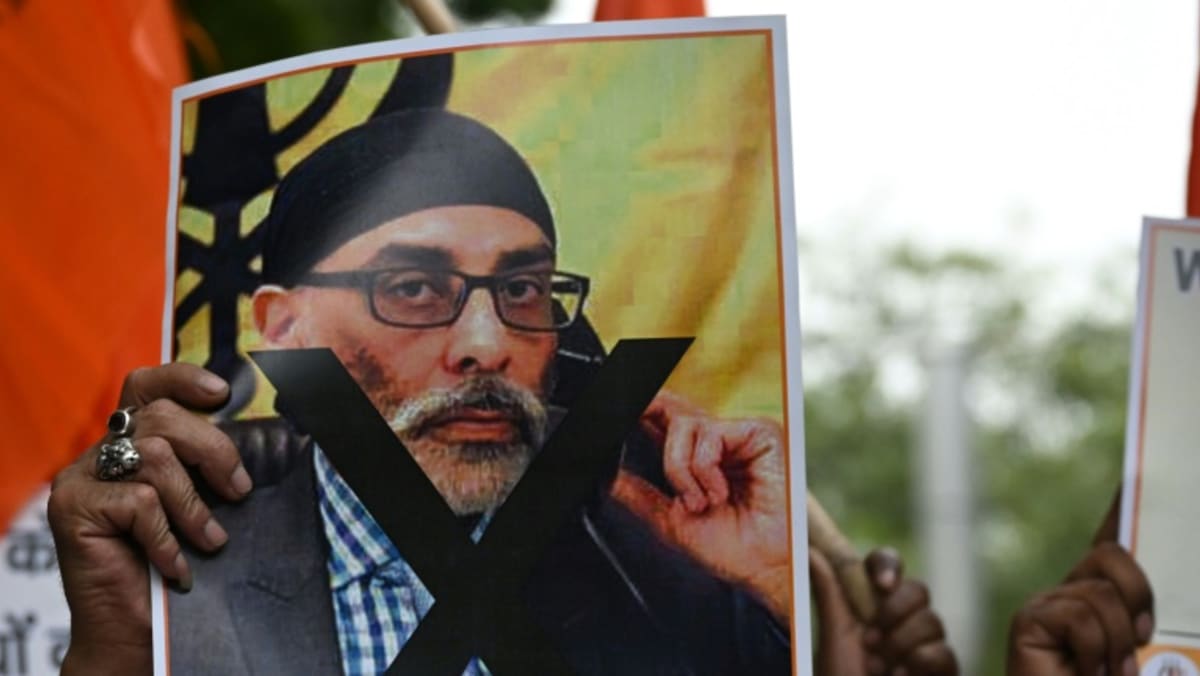NEW DELHI: Two months ago, relations between India and Canada deteriorated swiftly when Prime Minister Justin Trudeau said that prosecutors possessed “credible evidence” that the Indian state was behind the assassination of a Sikh separatist in British Columbia. It now looks like – if Indian intelligence did in fact arrange that killing – it may not have been a one-time event.
On Wednesday (Nov 29), United States federal prosecutors accused an Indian government agent of directing a plot to assassinate another Sikh separatist, this time an American citizen on US soil.
The Indian response to Canadian accusations contained more than a trace of contempt. Trudeau was criticised in the Indian press for being weak and unpopular, with the implication that his accusations were drummed up for political reasons. And in case that wasn’t enough, government officials accused Canada of being a “nexus” for organised crime, terrorism and human trafficking.
It seems unlikely that US “concerns” will be treated in the same manner. It’s much harder to paint the US as weak-willed on terror, after all.
Related:
What to know about the Sikh movement at the centre of tensions between India and Canada
“NOT OUR POLICY”
Still, the official response seems to have been a non-denial denial: Assassinations on foreign soil are “not our policy”. That’s similar to what the Canadians were told officially: Targeted killings are “not the government of India’s policy”.
If New Delhi has to say assassinations on foreign soil are not its policy on a couple more occasions, I fear some will begin to suspect that this is, in fact, its policy.
For many in India, the unofficial but heartfelt response is: So what? The rest of the world sends drones and bombs to take out people they think are threats; if we take care of things this way instead, why should anyone complain?
The argument that responsible countries should respect the rule of law in fellow liberal democracies does not seem to resonate in India. If anything, we’re happy to have reached a point as a nation where we can, if necessary, reach across the world to snuff out those we deem dangerous.
Related:
Commentary: Why India worries about the push for a separate Sikh state
Commentary: India needs to take Sikh leader's murder in Canada seriously
DIPLOMATIC AND POLITICAL COSTS
Just because we can do it, however, doesn’t mean that we should. Even those who scoff at the notion of “shared values” between India and the West must consider whether the costs – in terms of lost goodwill and inflamed public opinion – outweigh the possible benefits of such killings.
No country, even a relatively easy-going diplomatic partner, is overjoyed if another state prosecutes a proxy war on its soil.
Consider how India itself has responded in the past. When Israeli diplomats were attacked in New Delhi in 2012, Iran was widely blamed; over the next few months, the government decided to honour Western sanctions against Iran. Even today, the Iranians are mystified as to why India ignores sanctions on Russian oil but doesn’t buy theirs.
REVIVING A DYING KHALISTAN MOVEMENT
Besides, how it could possibly be in India’s national interest to turn Sikh separatists in the West into a cause celebre?
The target of this latest supposed plot, Gurpatwant Singh Pannun, is a deeply unsympathetic figure: He went viral in India recently after he warned Sikhs not to travel by Air India, as it could be “life-threatening”.





